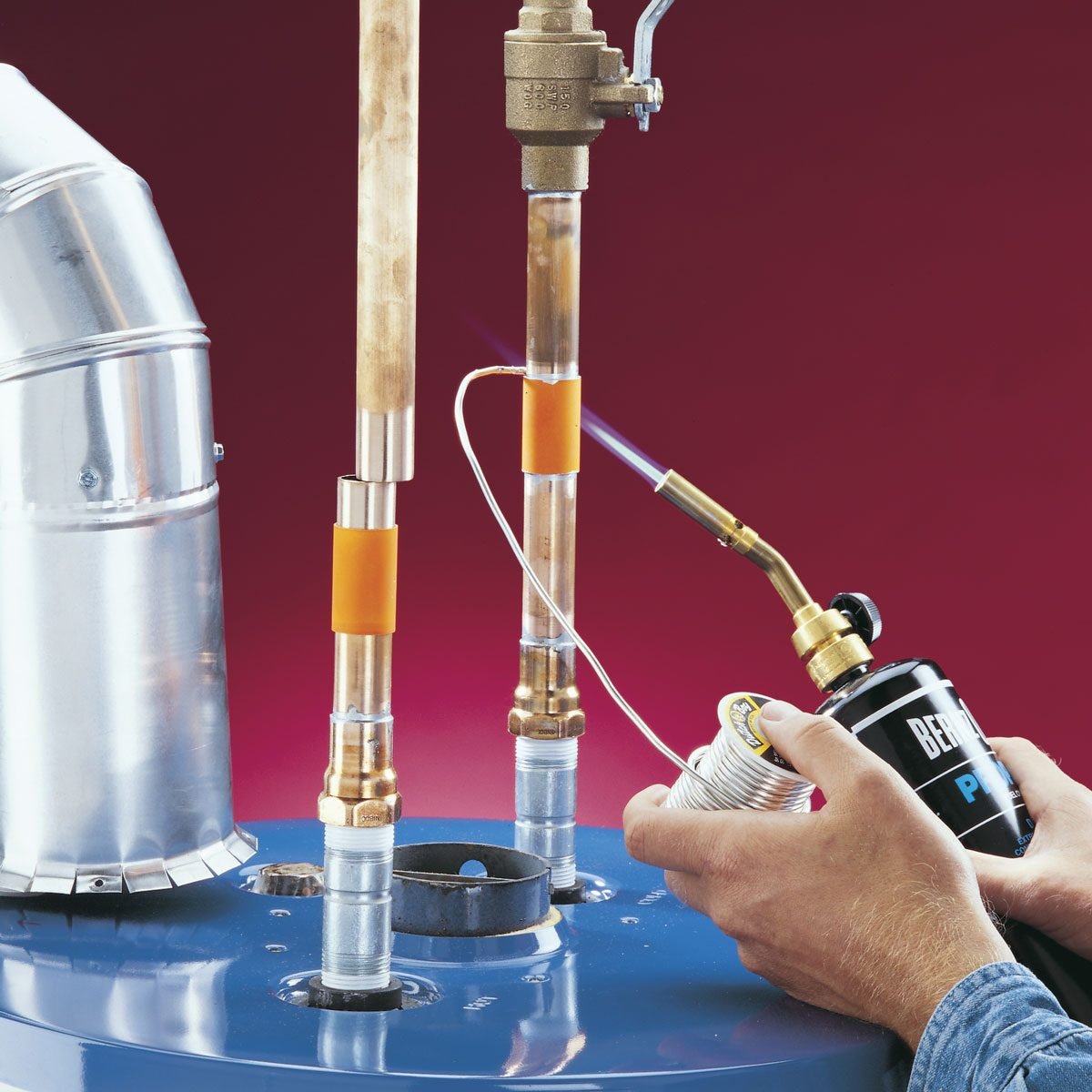Top-Rated Plumber Denton Offering Quality Plumbing Services You Can Trust
Top-Rated Plumber Denton Offering Quality Plumbing Services You Can Trust
Blog Article
Total Guide to Water Heating SystemInstallment and Replacement
Understanding the details of water heater installment and replacement is vital for property owners looking for to guarantee efficiency and dependability in their hot water supply. From picking the proper type and dimension to carrying out a smooth setup process, numerous variables must be taken into consideration to avoid typical pitfalls.
Kinds Of Hot Water Heater
When considering hot water heater setup and substitute, it is essential to comprehend the various kinds of water heaters available in the marketplace. The most typical kinds include storage tank water heating systems, tankless water heaters, heatpump hot water heater, and solar hot water heater.
Storage tank water heating systems are typical systems that keep a particular quantity of hot water, making them easily available when needed. In comparison, tankless water heaters provide hot water on demand, removing the need for storage.
Heat pump water heaters use power to transfer heat from the air or ground to heat water, supplying substantial power financial savings but calling for more space and specific setup problems. Solar water heating systems harness solar power to warmth water, giving an eco-friendly alternative with potential long-lasting expense financial savings, although they often require a back-up system for gloomy days.
Comprehending these alternatives ensures educated choices relating to setup and replacement, satisfying details requirements and choices.
Choosing the Right Size
Choosing the proper dimension for a hot water heater is critical to ensure optimal performance and effectiveness. A system that is as well tiny will battle to fulfill household needs, leading to irregular warm water schedule and increased power consumption. Alternatively, an extra-large water heating unit can cause unnecessary power waste and higher utility costs.
To figure out the best dimension, take into consideration the house's height warm water usage. This can be determined based on the variety of occupants and their regular warm water requirements. A household of 4 may need a water heating system with a capability of 50 to 80 gallons, depending on the use patterns, such as simultaneous showers and washing.
Furthermore, examine the recovery rate, which measures how promptly a heater can replenish warm water after it has been made use of. For tankless models, focus on the circulation price, measured in gallons per minute (GPM), to ensure it fulfills the house's synchronised demand.

Setup Refine Summary
/replacing-a-water-heater-1824920-10-4d53aa4c5c97472ab7cc7e5be4628cae.jpg)
Next, the old device needs to be disconnected and gotten rid of, taking care to follow neighborhood codes and policies regarding disposal. When the old unit is out, the new water heating unit can be placed in position. This step includes attaching the water system lines, ensuring that all installations are protected and leak-free.
After establishing water links, it's necessary to connect the power supply, whether electrical or gas, following the maker's instructions thoroughly. As soon as all connections are made, the system must be loaded with water, and the power can be transformed back on. It's important to inspect for leakages and guarantee the water heating unit is operating appropriately prior to finishing the installation process.
Typical Installment Blunders

One more regular blunder is neglecting to follow regional codes and guidelines. Failing to adhere to these standards can not only lead to security threats but may likewise result in expensive penalties or more tips here the requirement for pricey reinstallation.
Falling short to protect connections or making use of the incorrect type of fittings can lead to leakages and water damage. By avoiding these usual setup mistakes, home owners can ensure their water heating system runs safely and efficiently, maximizing efficiency and durability.
Maintenance Tips for Durability
Proper upkeep of a water heating unit is important for its long life and optimum performance. Normal assessments and maintenance can stop costly repair services and extend the device's life expectancy. Begin by examining the temperature setup; it should commonly be set in between 120 ° F and 140 ° F for optimal power efficiency and security.
Every 6 months, flush the container to eliminate debris buildup, which can hinder home heating efficiency and trigger deterioration. To do this, switch off the heating unit, link a tube to the drain valve, and allow the water run till it is clear.
When they are worn away,Anode rods need to be evaluated yearly and changed. These poles aid prevent storage tank deterioration by attracting destructive components in the water.
Additionally, check the pressure relief shutoff regularly to ensure it is working appropriately. This shutoff is vital for avoiding extreme pressure accumulation within the tank.
Finally, consider scheduling an expert maintenance check every few years for extensive inspections and maintenance. By sticking to these upkeep pointers, property owners advice can significantly improve the effectiveness, security, and life expectancy of their water heaters, ensuring reputable hot water for many years to come.
Conclusion
In verdict, proper installment and maintenance of water heating systems are important for guaranteeing performance and longevity. By recognizing these important facets, property owners can achieve a trusted hot water supply while minimizing potential concerns associated to water heating unit procedure.
Understanding the details of water heating unit installation and replacement is critical for property owners looking for to ensure efficiency and reliability in their warm water supply.Container water heaters are standard systems that save a specific volume of warm water, making them readily available when more helpful hints required. In comparison, tankless water heating systems provide hot water on need, eliminating the need for storage. Choosing a water heating unit that is either also tiny or also big can lead to inadequacies, resulting in poor warm water supply or excessive energy consumption.
By understanding these necessary aspects, homeowners can achieve a trustworthy warm water supply while decreasing possible concerns related to water heater operation. plumber Denton.
Report this page